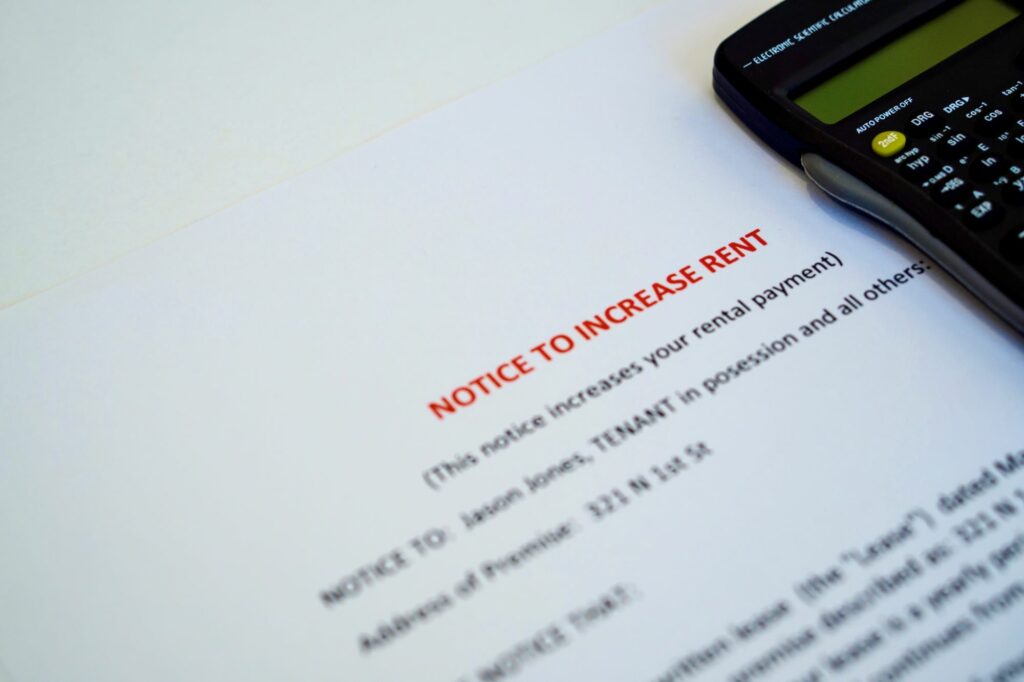Whether it’s the cost of groceries, housing, or healthcare, everything seems to be on the rise. And, unfortunately for landlords and tenants, this also includes rent.

In Australia, the Consumer Price Index (CPI) is the most common measure of inflation. According to the CPI, in 2022, the cost of housing rose by an incredible 7.3 per cent.
Not only did this take form in rent increases, but also in the cost of building new homes and purchasing existing ones.
For landlords, this is generally good news. After all, their investment is likely to go up in value as the cost of living increases. For tenants, however, it can be a major burden.
Rent increases are often a source of stress and conflict between landlords and tenants. But they don’t have to be. With a little bit of knowledge about the law and some good communication, the process can be relatively smooth.
In this article, we’ll cover everything you need to know about rent increases in Australia.
How much can rent increase in Australia?
Rental agreements in Australia are either periodic or fixed-term.
A periodic agreement is one where the renter pays rent at regular intervals with no end date. The amount of rent can be increased with 60 days written notice.
A fixed-term agreement is one where the renter pays rent at regular intervals for a set period (e.g. 6 or 12 months). The amount of rent cannot be increased during the fixed term, unless it is stated in the agreement.
Rent can be increased at the end of a fixed term agreement, as long as the rental provider gives the renter at least 60 days written notice of the proposed rent increase.
There are four common methods for calculating a rent increase:
- According to how much prices are generally changing in the economy, known as the consumer price index (CPI)
- According to average rent prices in the state, known as the statewide rent index
- By a fixed percentage increase
- By a fixed dollar amount
Rent can be increased legally and automatically each year, as long as the rental provider uses one of these four methods and gives the renter at least 60 days written notice of the proposed rent increase.
How often rent can increase in Australia?
As a tenant, rules apply to how often your rent can be increased.
In most cases, rent cannot be increased more than once every 12 months, even if the rental agreement specifies a rent increase before that time.
If you’re unsure, it’s best to check with your state’s housing authority or consumer affairs office.
A proposed rent increase must be in writing, and you must be given at least 60 days written notice. The notice must state the date the rent increase will take effect, and how much the rent will be increased by.
In some cases, you may agree in writing to a rent increase more than once a year, or at intervals of less than six months.
Certain circumstances may allow for a rent increase with less than 60 days notice. If the tenant thinks the increase is unfair, they can apply to the state’s civil and administrative tribunal for a review.

For Leases Shorter Than Five Years:
Tenants should be aware that most leases are for five years or less. If your rental agreement includes a proposed rent increase, this increase can only happen if the agreement says so, and only under the circumstances described below.
For agreements that started before June 19th, 2019: If your agreement says that rent can be increased, it can only happen once every six months.
For agreements that started on or after June 19th, 2019: If your agreement says that rent can be increased, it can only happen once every twelve months.
For agreements for rooming houses and residential or caravan parks starting after March 29th, 2021: If your agreement says that rent can be increased, it can only happen once every twelve months.
Rules apply to all rental agreements, so if you have any questions about your agreement, make sure to ask your rental provider.
For leases longer than five years:
According to your residential tenancy agreement, if your rental agreement is a fixed-term agreement that goes for more than five years, your rental provider cannot increase your rent more than once every 12 months – and only if the agreement says that the rent can be increased.
When you pay rent, the amount you pay will remain comparable throughout the course of the agreement.
In the event that you need to end your agreement early, you must give your rental provider proper notice – as specified in your written agreement. This tenant written notice must be given 1-2 months in advance, and the rental provider may keep any unpaid rent.









